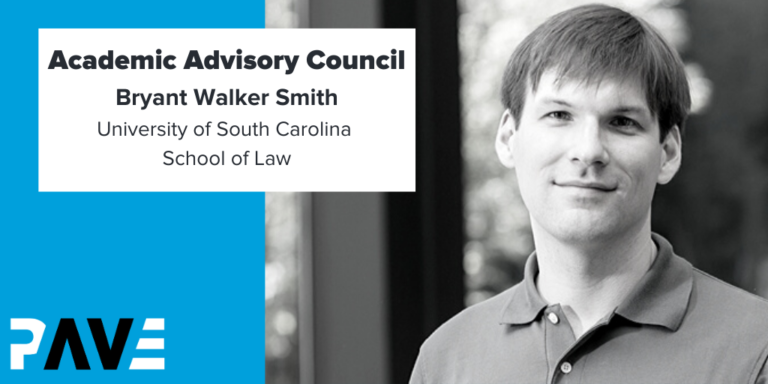About
Trained as a lawyer and an engineer, Professor Bryant Walker Smith advises governments, countries, and the United Nations on emerging transport technologies. He taught the first legal course on automated driving in 2012, coauthored the globally influential levels of driving automation, and has published widely on technology law and policy. He is an associate professorin the School of Law and (by courtesy) the School of Engineering at the University of South Carolina, an affiliate scholar at the Center for Internet and Society at Stanford Law School, and co-director of the University of Michigan Project on Law and Mobility. His publications are at newlypossible.org.
PAVE: How does your work align with the mission of PAVE to educate the public on AV technology and its promise?
In my work, I try to help people from different backgrounds talk with each other about new technologies in accurate and constructive ways. For example, how can reporters determine and then communicate the significance of AV announcements? I recently wrote about this.
PAVE: What are current barriers you see in public acceptance of automated vehicles?
This is the wrong question. Public acceptance should follow demonstrated benefit. And this requires a candid discussion of automation’s challenges and opportunities. Tell truthful stories about what’s possible as well as about what’s hard. Focus on the societal problems we’re trying to solve, on the readiness of the technologies to address these problems, and on the trustworthiness of the companies developing these technologies.
PAVE: What challenges do you see in improving public education about automated vehicles?
A lot of public knowledge about the state of automated driving is worse than second-hand: Someone might hear a friend mention a headline from an article paraphrasing another article summarizing a press release spinning a technical development. So people tend to both overestimate and underestimate what is currently possible. At the same time, automated vehicles are a topic of intense interest, and they’ve an especially visible symbol for coming technological changes. This means that we tend to put so many of our hopes and fears about automation more generally into the basket that is automated driving. That makes it especially important to foster grounded discussions about what is happening today and what we want to happen tomorrow.
 PAVE US
PAVE US PAVE EUROPE
PAVE EUROPE PAVE UK
PAVE UK

